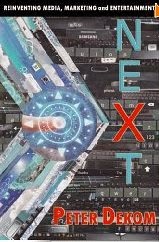
“The National Security Agency", the eavesdropping agency, tracking e-mail and cellphone traffic around the world, each day collects four times the volume of information stored in the Library of Congress…said Matthew M. Aid, an intelligence historian whose book, ‘The Secret Sentry,’ examines the N.S.A.” December 31st New York Times. After 9/11, we created an über-agency, the National Counterterrorism Center , just outside Washington , D.C. (in Virginia ), to coordinate all of the relevant intelligence and insure maximum cooperation between and among all of the relevant governmental agencies on this super-sensitive mission. But what exactly do you do with mountains of intelligence, showing lots of threats, when following every lead would grind the government to a fatalistic halt?
Still the agencies don’t really share all the information, still the airplane is the favored “terror-delivery mechanism” of our sworn al Qaeda enemies (and their ilk) – they seem to thrive on public transportation in general, and still the governmental turf wars continue (particularly between the CIA and the FBI). There is much that must be improved. But we are also in danger in overreacting in a way that may assuage some that we are safe, but which may in fact provide costly additional layers of relatively ineffective preventative measures. Bottom line, if a terrorist knows that he or she cannot follow one path because it is too well-guarded, they will simply find another way. And since they have clearly shown that their human bombs are totally expendable, they can continue to throw their explosive minions at us until one or more connect.
But who’s kidding whom here… sooner or later there is going to be another major terrorist attack in the United States, innocents are going to be slaughtered, and even the best-intentioned preventative system in the world can’t stop every possible threat. The land is too vast, ingress (one way or another) is just too easy and the numbers of people that must be watched is too great for us to be able to stop it all, Dick Cheney’s admonitions to the contrary notwithstanding. That al Qaeda can still strike where we have deployed the greatest internal measures at extreme costs (air travel) has to send a pretty strong signal to all of us.
For us to control it all requires that we suspend the Constitution and track the conversations and movements of everyone in this country and everyone who might travel here… destroying our economy in the process (a bigger victory for al Qaeda, don’t you think, than any bomb could inflict?). We live in a modern age with modern-age risks. We have to balance protecting ourselves against a complete erosion of who we are as Americans. And if you think we face horrible risks here, imagine what life is like for the average Israeli.
The President has ordered a major review of the failure that allowed Nigerian crotch-bomber, Umar Farouk Abdulmutallab, trained by al Qaeda in Yemen, to carry explosives onto a Detroit-bound jet on Christmas for the expressed intent to detonate and devastate. Déjà vu, 9/11-shoe bomber all over again. “‘It’s totally frustrating,’ said Thomas H. Kean, chairman of the national Sept. 11 commission. ‘It’s almost like the words being used to describe what went wrong are exactly the same.’… Eleanor Hill, staff director of the joint Congressional inquiry into Sept. 11, called the emerging story ‘eerily similar to the disconnects and missteps we investigated.’… ‘There seems to have been the same failure to put the pieces of the puzzle together and get them to the right people in time,’ Ms. Hill said.” New York Times.
Notwithstanding appearances to the contrary, things are getting better, but the system is just overwhelmed. “Intelligence analysts from one agency now routinely serve for a time in another agency, to develop personal ties. Databases of suspected terrorists are far more complete and accessible. The ban on hoarding data is strictly enforced... ‘It is the death penalty if you are not sharing threat information,’ said Kip Hawley, who headed the Transportation Security Administration until January. That agency, for example, participates in daily briefings run by the counterterrorism center, and at times National Security Agency analysts visit counterparts at the T.S.A. to walk them through intercepts, he said.” The Times.
Yet we see the same “missed warnings”… the bomber’s own father issuing one of the cautions that was disregarded. We note what information was not shared, even though one agency clearly had knowledge of some relevant “nasties.” Can every lead be followed? We make foreign travelers go through so many hoops that we are killing our tourism industry during an economic period when we need every penny. We are even killing off the incentives for domestic travel as airline stocks teeter. And if we are trying to defeat these “inglorious basterds” as they try and suck the life out of us, how far should we destroy our lifestyle to accommodate our fears?
I’m Peter Dekom, and I approve this message.














